The achievement on this count is also found wanting in states like Assam, Uttarakhand, Punjab, and Kerala.
At a time when the Modi government is keen on giving a push to digitisation, tardy implementation of a key Central scheme by the states to plug the loopholes in food subsidy to the poor, has raised concerns in government circles. It has come to light that even states with huge population like Uttar Pradesh, Bihar, West Bengal, and Haryana have failed to meet the target.
The achievement on this count is also found wanting in states like Assam, Uttarakhand, Punjab, and Kerala.
With a view to modernise the Targeted Public Distribution System (TPDS) and to check leakages and diversion, the Department for Food and Public Distribution has been implementing a Plan Scheme on ‘End-to-end Computerisation of TPDS Operations’, which is expected to facilitate digitisation of ration cards and beneficiaries and other databases, computerisation of supply-chain management, setting up of transparency portal, and grievance redressal mechanisms.
The scheme, approved in October 2012, was to be be implemented during the 12th Five Year Plan (2012-17) in all states and union territories. However, the deadline was later extended up to March 2018. Yet, the scheme, which was to be implemented on a cost sharing basis with states and UTs, remains to see the light of the day in many places.
In Uttar Pradesh, where 95 per cent of the population have been issued Aadhaar cards, only 77 per cent of ration cards were seeded with Aadhaar. Among the beneficiaries of food subsidy, the Aadhaar number of only 24 per cent beneficiaries were seeded with Aadhaar details.
In West Bengal, even though 99 per cent of the population has Aadhaar numbers, the seeding of it in ration cards stagnates at 63 per cent. In Bihar, where 91 per cent population have been issued Aadhaar card, only 78 per cent ration cards are seeded with Aadhaar numbers.
Despite the digital push, none of the 38 thousand fair price shops operational in Assam have electronic point of sale (ePoS) devices. Even in West Bengal and Kerala, none of the 20 thousand and 14 thousand fair price shops, respectively, have ePoS. In UP, out of 80 thousand such shops, only 13,100, which is a meagre 16 per cent of the total fair price shops, have these devices installed.
In an official communication to Chief Ministers, Minister for Consumer Affairs, Food and Public Distribution, have underlined that for advancement of the goal of digital cash economy, it is necessary to have digital payment facilities at fair price shops, which is dependent on installation of ePoS devices.
In most of these states, the automation of supply chain management, a key component of the scheme is also pending. Reforms mandated under the implementation of the Food Security Act is not possible without completing this work.
Standing Committee on Food, Consumer Affairs and Public Distribution in its report on Computerisation TPDS presented to both Houses of Parliament in November last year had noted with concern that the progress of work of computerisation is progressing "at snail's pace" and it and had apprehended that this would "negate" the benefits reaching the masses.
The panel had urged Department of Food and Public Distribution to impress upon the states/ UTs to speed up the work on war-footing and complete the work in a time-bound manner, so as to improve the over-all functioning of the TPDS operations in the country.
![submenu-img]() T20 World Cup 2024: ICC reprimands Afghanistan captain Rashid Khan ahead of semi-final vs South Africa
T20 World Cup 2024: ICC reprimands Afghanistan captain Rashid Khan ahead of semi-final vs South Africa![submenu-img]() Veteran BJP leader LK Advani admitted to AIIMS Delhi
Veteran BJP leader LK Advani admitted to AIIMS Delhi![submenu-img]() DNA TV Show: Did Delhi CM Arvind Kejriwal put blame on Manish Sisodia in liquor policy case?
DNA TV Show: Did Delhi CM Arvind Kejriwal put blame on Manish Sisodia in liquor policy case?![submenu-img]() Watch: Shatrughan Sinha shares inside photos, videos from Sonakshi Sinha, Zaheer Iqbal's 'wedding of the century'
Watch: Shatrughan Sinha shares inside photos, videos from Sonakshi Sinha, Zaheer Iqbal's 'wedding of the century'![submenu-img]() Kalki 2898 AD director Nag Ashwin reveals these two south stars will also appear in film, Prabhas reacts: Watch
Kalki 2898 AD director Nag Ashwin reveals these two south stars will also appear in film, Prabhas reacts: Watch![submenu-img]() Meet woman who topped class 10, 12, CLAT, law school, cracked UPSC in 1st attempt without coaching to become IAS with...
Meet woman who topped class 10, 12, CLAT, law school, cracked UPSC in 1st attempt without coaching to become IAS with...![submenu-img]() Meet IIT-JEE topper with AIR 7, daughter of Maths teacher, scored 332 marks in JEE Advanced 2024, planning to...
Meet IIT-JEE topper with AIR 7, daughter of Maths teacher, scored 332 marks in JEE Advanced 2024, planning to...![submenu-img]() UPSC topper IAS Tina Dabi's Class 12 marks goes viral on social media, check her scores in different subjects
UPSC topper IAS Tina Dabi's Class 12 marks goes viral on social media, check her scores in different subjects![submenu-img]() Meet woman who is not from IIT, IIM, VIT, NIT, got job with record-breaking package of...
Meet woman who is not from IIT, IIM, VIT, NIT, got job with record-breaking package of...![submenu-img]() Meet Indian genius who saved lakhs of lives with his discovery, received six Nobel nominations, but never won due to…
Meet Indian genius who saved lakhs of lives with his discovery, received six Nobel nominations, but never won due to…![submenu-img]() DNA Verified: Did Kangana Ranaut party with gangster Abu Salem? Actress reveals who's with her in viral photo
DNA Verified: Did Kangana Ranaut party with gangster Abu Salem? Actress reveals who's with her in viral photo![submenu-img]() DNA Verified: New Delhi Railway Station to be closed for 4 years? Know the truth here
DNA Verified: New Delhi Railway Station to be closed for 4 years? Know the truth here![submenu-img]() DNA Verified: Did RSS chief Mohan Bhagwat praise Congress during Lok Sabha Elections 2024? Know the truth here
DNA Verified: Did RSS chief Mohan Bhagwat praise Congress during Lok Sabha Elections 2024? Know the truth here![submenu-img]() DNA Verified: Is CAA an anti-Muslim law? Centre terms news report as 'misleading'
DNA Verified: Is CAA an anti-Muslim law? Centre terms news report as 'misleading'![submenu-img]() DNA Verified: Lok Sabha Elections 2024 to be held on April 19? Know truth behind viral message
DNA Verified: Lok Sabha Elections 2024 to be held on April 19? Know truth behind viral message![submenu-img]() Alia Bhatt mesmerises in gown, Ranbir Kapoor looks classy in tuxedo in latest romantic photos, fans say 'couple goals'
Alia Bhatt mesmerises in gown, Ranbir Kapoor looks classy in tuxedo in latest romantic photos, fans say 'couple goals'![submenu-img]() Newlyweds Sonakshi Sinha-Zaheer Iqbal pose candidly with paps; Anil Kapoor, Kajol, Huma Qureshi attend wedding reception
Newlyweds Sonakshi Sinha-Zaheer Iqbal pose candidly with paps; Anil Kapoor, Kajol, Huma Qureshi attend wedding reception![submenu-img]() Meet Lovekesh Kataria: Elvish Yadav's close friend, Bigg Boss OTT 3 contestant who lied to father, spent his fees on...
Meet Lovekesh Kataria: Elvish Yadav's close friend, Bigg Boss OTT 3 contestant who lied to father, spent his fees on...![submenu-img]() From Highway to Chandu Champion: 5 underrated gems from Sajid Nadiadwala
From Highway to Chandu Champion: 5 underrated gems from Sajid Nadiadwala![submenu-img]() In pics: Bigg Boss OTT 3 house with dragons, two-sided walls is all about fantasy coming alive
In pics: Bigg Boss OTT 3 house with dragons, two-sided walls is all about fantasy coming alive![submenu-img]() Lok Sabha Speaker's Election: What does the Constitution say?
Lok Sabha Speaker's Election: What does the Constitution say?![submenu-img]() Explained: Why is Kerala demanding to change its name to Keralam?
Explained: Why is Kerala demanding to change its name to Keralam?![submenu-img]() DNA Explainer: What is Kafala system that is prevalent in gulf countries? Why is it considered extremely brutal?
DNA Explainer: What is Kafala system that is prevalent in gulf countries? Why is it considered extremely brutal? ![submenu-img]() Lok Sabha Elections 2024: What are exit polls? When and how are they conducted?
Lok Sabha Elections 2024: What are exit polls? When and how are they conducted?![submenu-img]() DNA Explainer: Why was Iranian president Ebrahim Raisi seen as possible successor to Ayatollah Khamenei?
DNA Explainer: Why was Iranian president Ebrahim Raisi seen as possible successor to Ayatollah Khamenei?![submenu-img]() Watch: Shatrughan Sinha shares inside photos, videos from Sonakshi Sinha, Zaheer Iqbal's 'wedding of the century'
Watch: Shatrughan Sinha shares inside photos, videos from Sonakshi Sinha, Zaheer Iqbal's 'wedding of the century'![submenu-img]() Kalki 2898 AD director Nag Ashwin reveals these two south stars will also appear in film, Prabhas reacts: Watch
Kalki 2898 AD director Nag Ashwin reveals these two south stars will also appear in film, Prabhas reacts: Watch![submenu-img]() Kaun Banega Crorepati 16: Amitabh Bachchan introduces thought-provoking campaign, fans say 'eagerly waiting for show'
Kaun Banega Crorepati 16: Amitabh Bachchan introduces thought-provoking campaign, fans say 'eagerly waiting for show'![submenu-img]() Why Kalki 2898 AD makers chose June 27 release date? Know how it is connected to Mahabharata, Lord Vishnu
Why Kalki 2898 AD makers chose June 27 release date? Know how it is connected to Mahabharata, Lord Vishnu![submenu-img]() Ahead of Kalki 2898 AD's release, makers have this request from fans: 'Let's please respect...'
Ahead of Kalki 2898 AD's release, makers have this request from fans: 'Let's please respect...'![submenu-img]() Mukesh Ambani's son Anant Ambani and Radhika Merchant's wedding invite goes viral, watch video here
Mukesh Ambani's son Anant Ambani and Radhika Merchant's wedding invite goes viral, watch video here![submenu-img]() '4 bhk for 15 crore,': Netizens in shock after Noida man's video for house hunt goes viral
'4 bhk for 15 crore,': Netizens in shock after Noida man's video for house hunt goes viral![submenu-img]() Isha Ambani's latest picture with twins is going viral on social media due to...
Isha Ambani's latest picture with twins is going viral on social media due to...![submenu-img]() Gulbadin Naib under scrutiny, may face heavy fine after dramatic Afghanistan win
Gulbadin Naib under scrutiny, may face heavy fine after dramatic Afghanistan win![submenu-img]() Makeover of homeless woman leaves internet stunned, netizens says...
Makeover of homeless woman leaves internet stunned, netizens says...

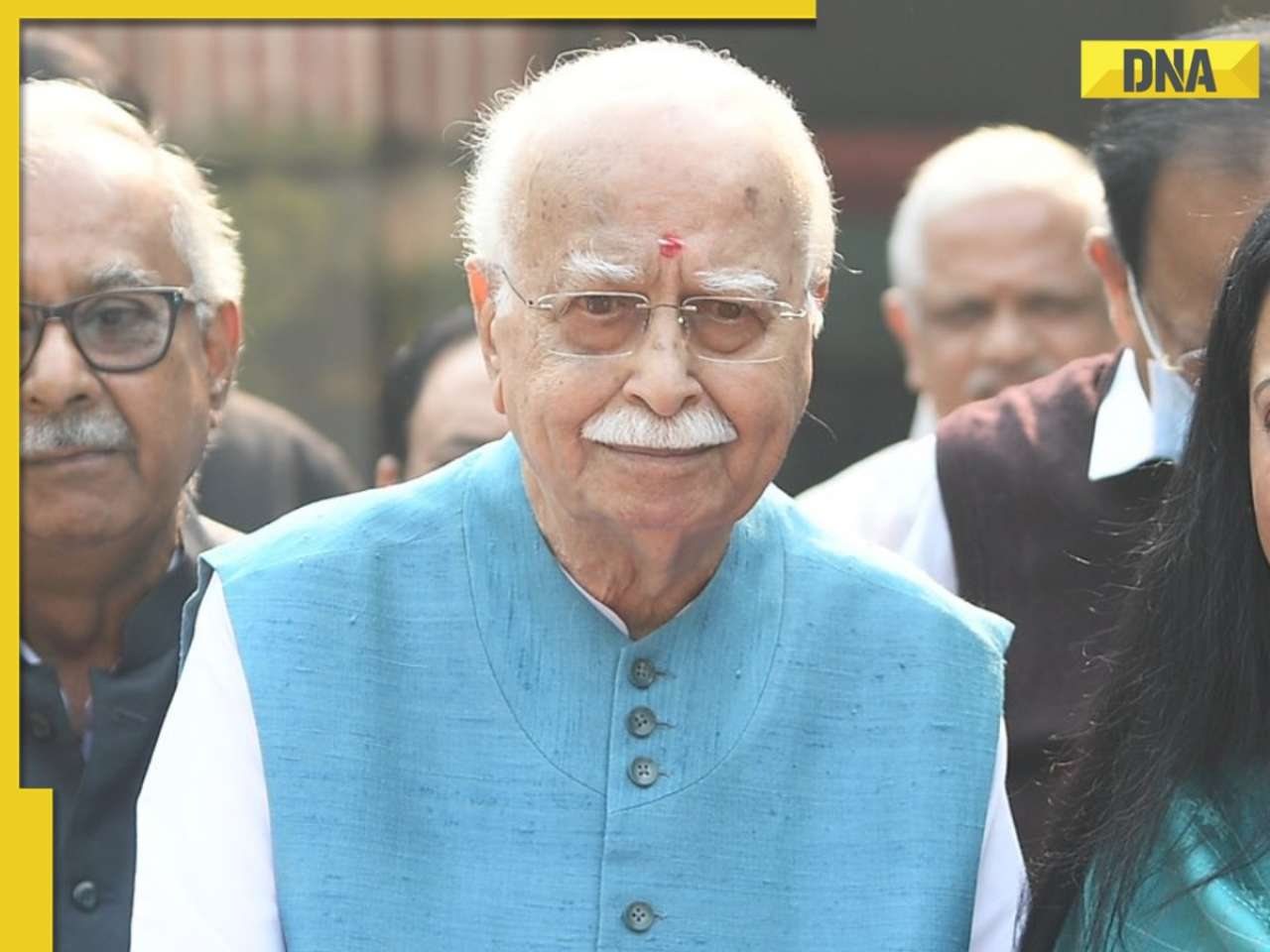
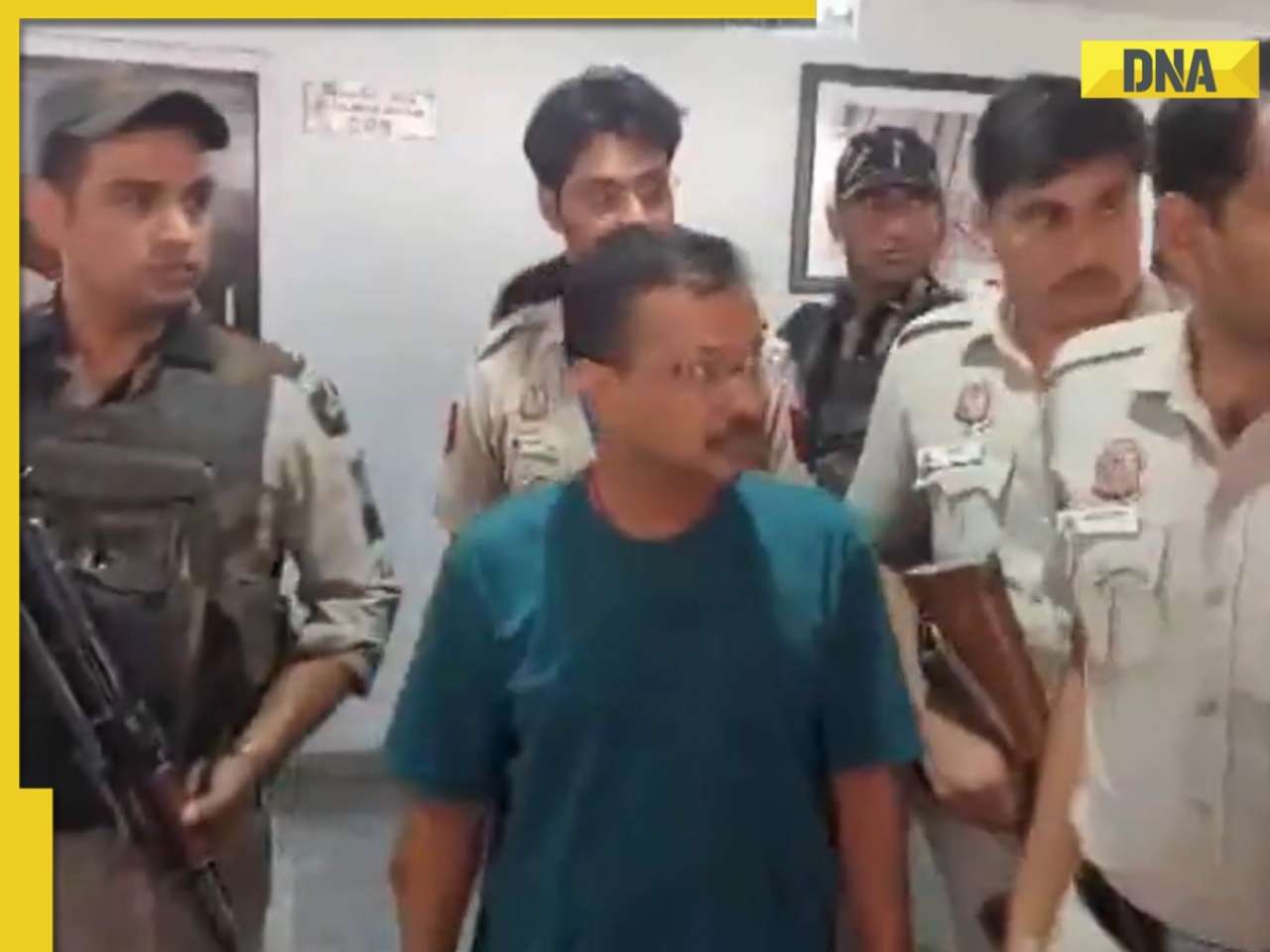






















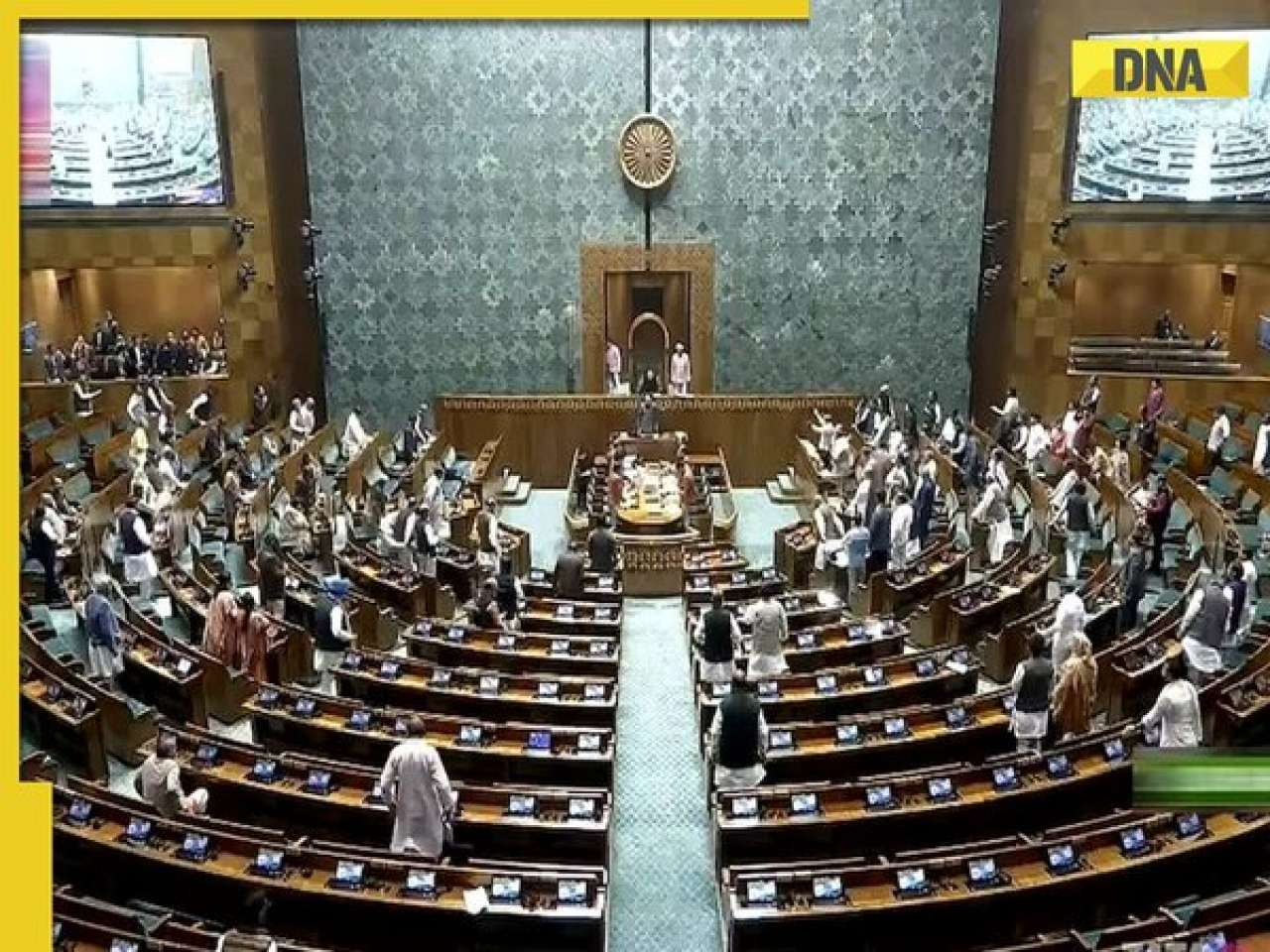
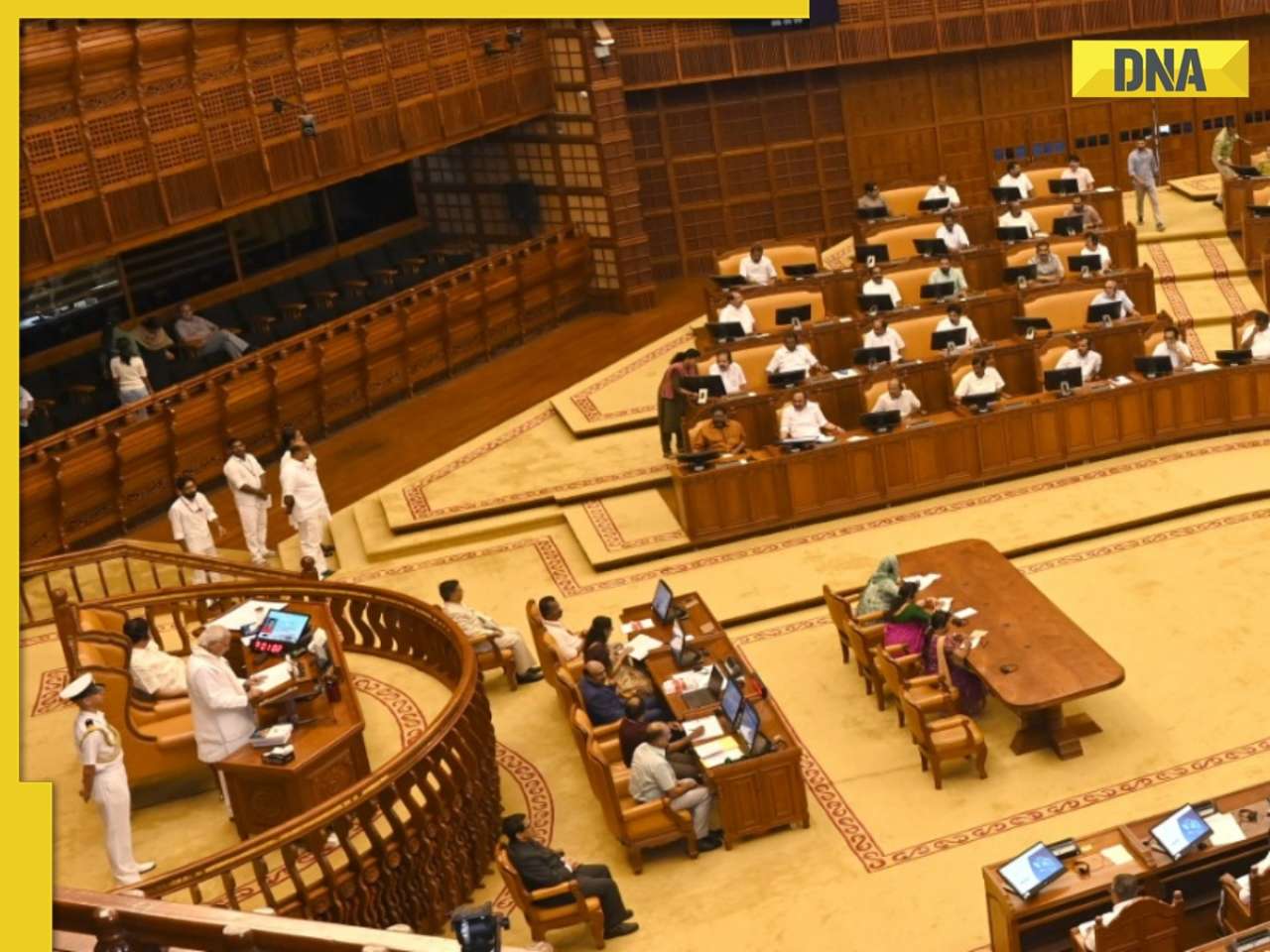



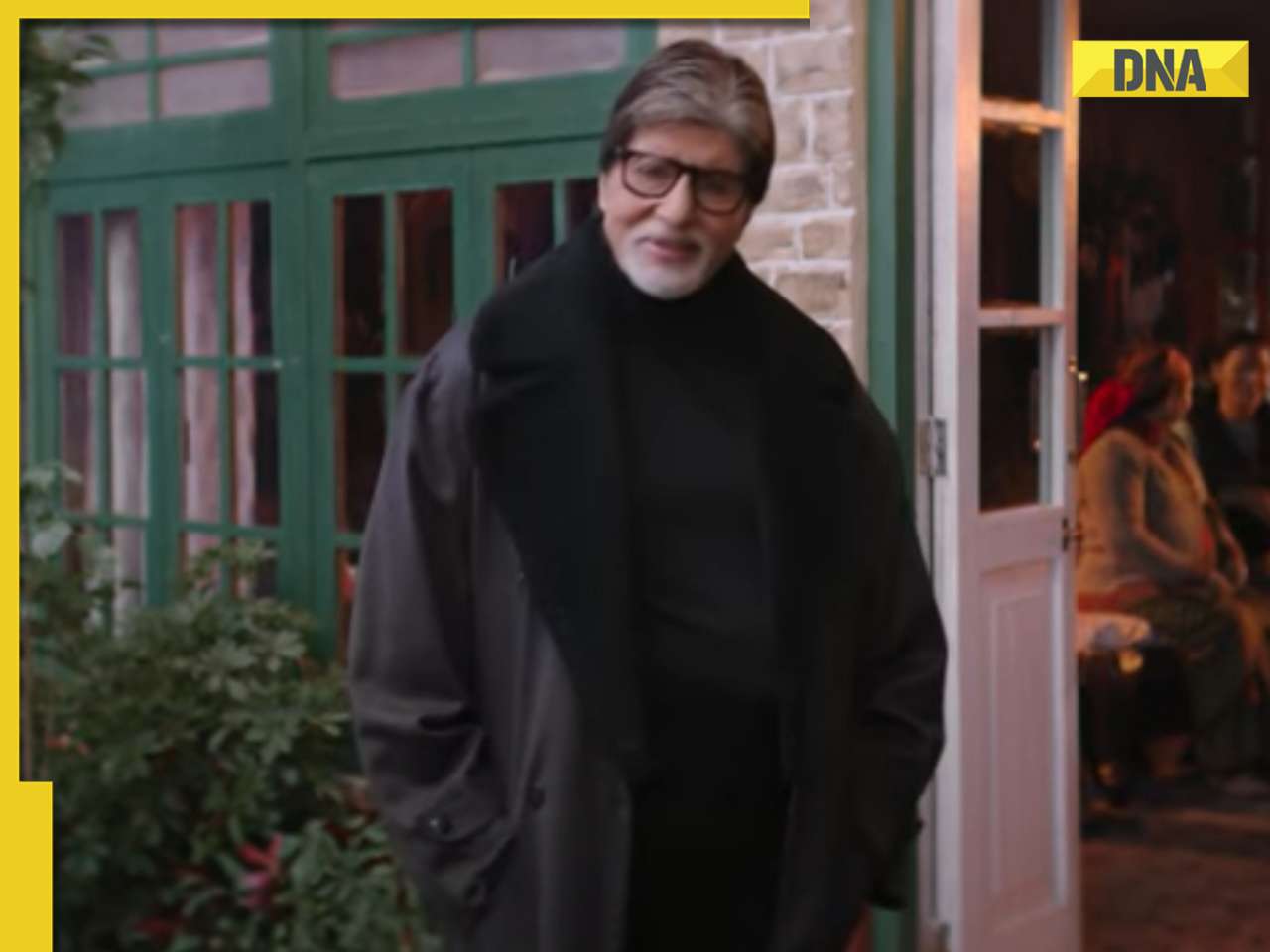








)



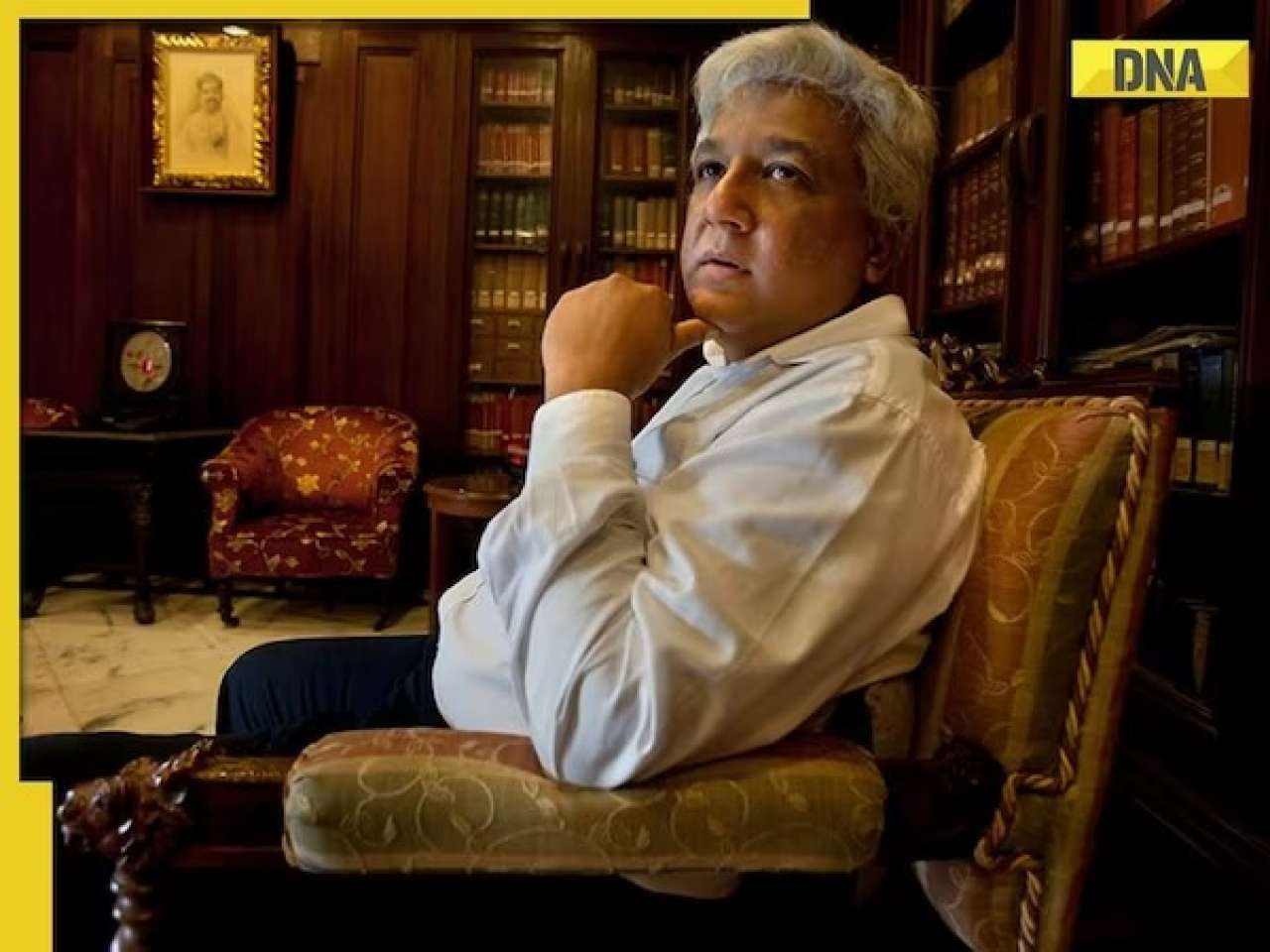

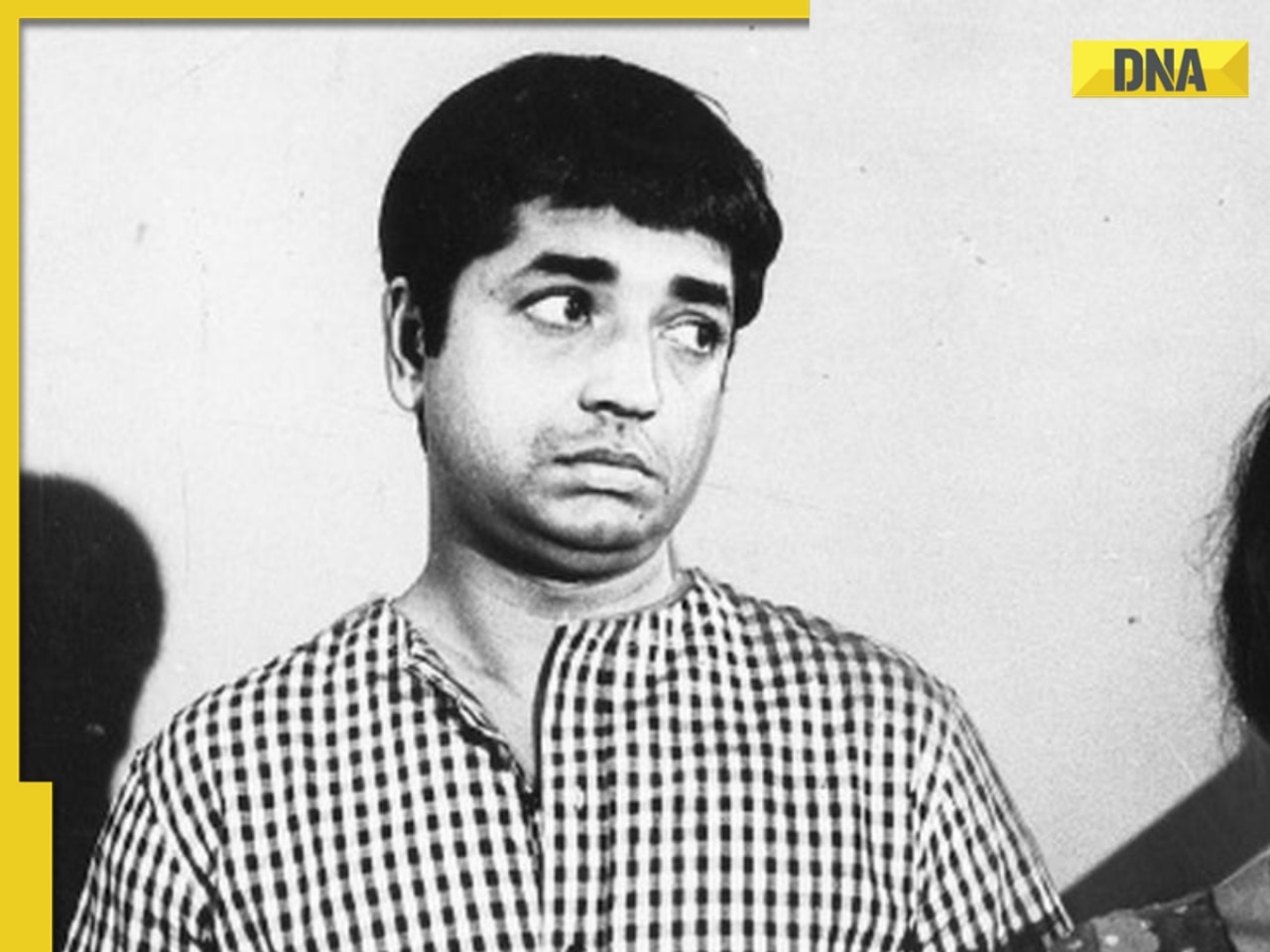




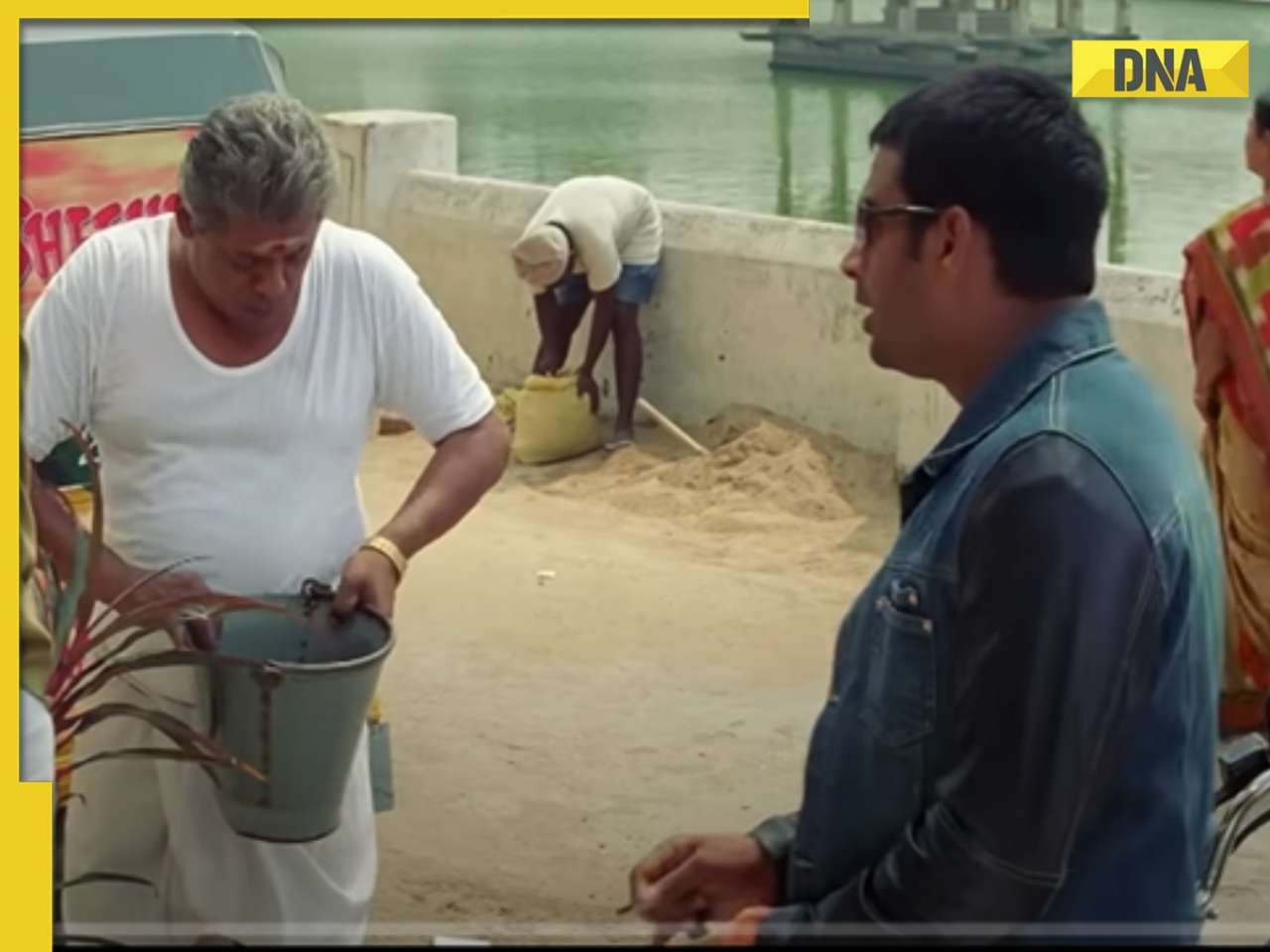







)
)
)
)
)
)